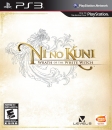Mr Khan said:
You're going to need to provide some evidenciary support on that. This whole "it's a trend if you just ignore the Wii" thing smacks of the kind of baseless goal-post moving that i thought VGChartz was smarter than. |
It's not about ignoring the Wii, it's accepting that it was 'lighting in a bottle', a special event that just can't be duplicated at will. Once you accept that the Wii was a one off, every other console Nintendo have made follows the downward spiral.
But as you want me to add weight to what i'm saying, I put to you this piece by CVG editor Rob Crossley:
http://www.computerandvideogames.com/446277/blog/nintendo-must-reinvent-itself/
He wrote the perfect piece that explains Nintendos situation spot on. I'll Quote some here.
"The problem is a matter of legacy and tradition too. Nintendo is a keystone of Japanese culture and history, now months away from its 125th anniversary and older than most cities across the country. Its philosophies and values on entertainment are, relative to other media companies, ancient and ossified.
Treasured as that may be, it's the reason why Nintendo is struggling in the rapidly advancing world of interactive entertainment. The corporation's age-old principles, of quality and universal appeal, are still important but not enough to sway a modern audience.
In fact, if one takes the Wii as the anomaly (bear with me on that), historical figures show that Nintendo's home console sales have been in steady decline since the '80s.
The positive impact Nintendo has on people's youth and adulthood is without question, but millions of its fans have demonstrably moved elsewhere at the dawn of each new generation.
That's the problem with honouring history when tastes move on. Competitors such as Sony, Microsoft, Valve and Apple have released game platforms that, in many respects, are perfect for gamers who grew up with Nintendo but now want experiences better suited to their eclectic tastes.
In the three decades since the NES, game enthusiasts have become absorbed in 2D fighters, racing sims, stealth-action games, MMOs, cinematic adventures, Grand Theft Auto and military shooters. Nintendo has barely touched any of these genres, which suggests both a commendable commitment to perfecting its craft yet also reluctance to be honest about gamers' evolving habits.
The recent Wii U calamities may portray Iwata as a businessman who has lost his touch, but the system's struggle is the continuation of the downward spiral that was drawn more than a decade ago - one which it managed to avoid in recent years, but not escape.
In 2002, when major retail chains held fire-sales of remaining GameCube stock, and when a growing number of publishers pulled support for the platform, executives at Nintendo had a clear choice in front of them. Either compete with Sony and Microsoft on their own terms or find a new market entirely.
George Harrison, Nintendo of America's head of corporate communications at the time, said doing neither would have been devastating.
"We knew that direct three-way competition in the hardware space was not going to support Nintendo financially in the future, so something had to change," he told CVG years later.
"We knew we could probably never get that 80 per cent market share back, but we decided that there was a better chance if we went after a different audience."
"So Nintendo decided to quit the console race, at least in the traditional sense. The outcome of that thinking was the Wii, a pioneering and idiosyncratic console that caught the imagination of the masses and dramatically reversed Nintendo's fortunes, at least for a while. But few foresaw that its new casual audience would be so resistant to games industry convention, and in particular, the concept of recycling consoles.
Most families see no reason to replace their Blu-Ray, DVD and VHS player unless it breaks, and it has been this way for decades. Irrespective of Nintendo's poor attempts to demonstrate the Wii U as a new console in the first place, why would a non-committal customer throw away a working console to buy another? Why would an average family even understand the logic behind that?
Perhaps the thinking was: Since a completely different audience replaces their consoles every five years or so, this must be true of everyone."
"There are reasons to believe the Wii's casual audience was fickle, especially since many of them now play games on smartphones and tablets instead. But the last major mainstream Nintendo title targeted for such a market was Wii Party, released in 2010. As far as the masses are concerned, there are simply no new Wii games anymore.
Whether Nintendo is to blame or not, the company has fallen back to a GameCube audience size and revisits the dilemma that came with it. Where will Nintendo find an audience now? Lifelong fans still follow, and are repaid with some of the finest games in the world, but the numbers are unsustainable.
That's why a new console alone will not break this curse. What Nintendo needs more than anything is a bold and brutal assessment of its traditional and institutionalised philosophies."


















